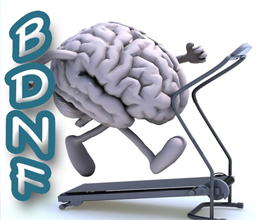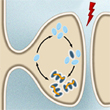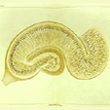Wednesday, 22 February 2017
To Retain Information Better, Wait a Few Hours, Then Go for a Run!

The study that I want to tell you about today was done by Eelco V. van Dongen and his colleagues and is entitled “Physical Exercise Performed Four Hours after Learning Improves Memory Retention and Increases Hippocampal Pattern Similarity during Retrieval.”
This study’s findings can be summed up as follows: if you have just made a new mental association and want to remember it better, wait a couple of hours, and then go do some exercise! In van Dongen’s study, three groups of subjects performed a memory-encoding task. One group performed exercise immediately after, one did so four hours after, and the third did not perform any exercise at all. When the three groups were tested for their retention of the encoded memory two days afterward, the group that had exercised four hours after the task showed the best retention among the three groups. (more…)
Memory and the Brain | No comments
Monday, 30 March 2015
Is There an Evolutionary Continuity between Spatial Navigation and Declarative Memory?

Sometimes someone comes up with a hypothesis whose parts fit together so neatly that it seems amazing that no one has ever thought of it before. A good example is the hypothesis proposed by György Buzsáki and Edvard Moser in the January 2013 issue of the journal Nature Neuroscience, where they propose that there is an evolutionary continuity between the cognitive processes that we use to orient ourselves in space and and the mechanisms that underlie our declarative memory. (more…)
Memory and the Brain | Comments Closed
Wednesday, 24 July 2013
Oligomers Help Us Keep Our Memories
 A protein whose molecules have the special ability to stack on top of one another, somewhat like egg cartons, and thus form short, highly stable chains (oligomers), may well play a key role in the mechanisms by which we maintain lasting memories.
A protein whose molecules have the special ability to stack on top of one another, somewhat like egg cartons, and thus form short, highly stable chains (oligomers), may well play a key role in the mechanisms by which we maintain lasting memories.
Indeed, there is always something magical about remembering something that you haven’t thought about in years. But physically speaking, in what form is the corresponding memory trace maintained in your brain over all that time? Neurobiologists know that the whole process occurs in the synapses (the plastic connections between neurons) and have described molecular mechanisms such as long-term potentiation that partly explain this plasticity. (more…)
Memory and the Brain, Mental Disorders | Comments Closed
Monday, 3 December 2012
Your Brain Likes Nature Better Than E-Mail

In the early summer of 2010, five neuroscientists spent a week all on their own, rafting and camping along the San Juan River in a remote area of southern Utah, in the United States. Nothing so special about that—plenty of people make these kinds of wilderness expeditions nowadays.
What made this adventure different was that these scientists gave themselves two additional challenges. Knowing that workaholism tends to come with their profession, they decided to spend the entire week without their cell phones and laptop computers. And being neuroscientists, they decided to observe their own reactions to this deprivation and thereby try to shed light on their own hypotheses about how daily use of these technologies may be changing the ways that people think and behave. (more…)
The Emergence of Consciousness | Comments Closed
Tuesday, 27 November 2012
Links on How Memory Works (continued)
 Research on human memory is such an important aspect of cognitive neuroscience today that a tremendous number of articles about memory research can be found on the Internet. So this week, I am continuing last week’s list of new links to articles about various aspects of how memory works—one of the sub-topics covered under the topic Memory and the Brain in The Brain from Top to Bottom. For each link, I provide a brief description of the article in question.
Research on human memory is such an important aspect of cognitive neuroscience today that a tremendous number of articles about memory research can be found on the Internet. So this week, I am continuing last week’s list of new links to articles about various aspects of how memory works—one of the sub-topics covered under the topic Memory and the Brain in The Brain from Top to Bottom. For each link, I provide a brief description of the article in question.
(For more background on how I compile these lists, see my earlier post on Links About Brain Anatomy.) (more…)
Memory and the Brain | Comments Closed







